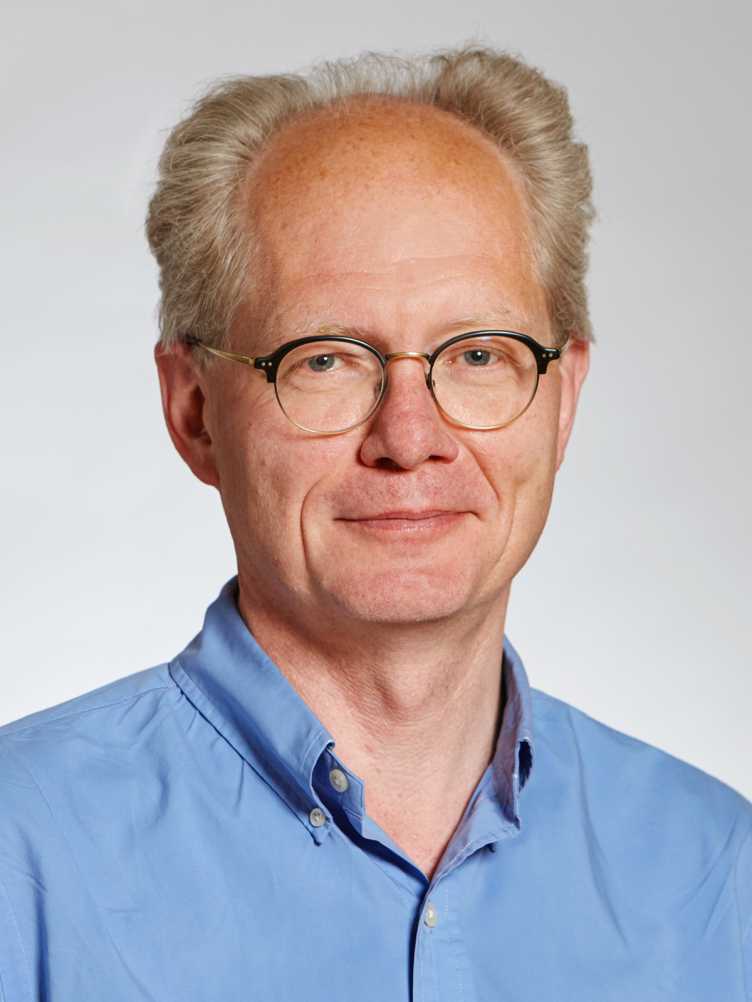From Earth to distant worlds: ETH department is now called Earth and Planetary Sciences
The Department of Earth Sciences at ETH Zurich has been renamed the Department of Earth and Planetary Sciences, abbreviated to D-EAPS, effective 1 August. Head of Department Johan Robertsson explains why the renaming was both logical and necessary.

ETH News: Professor Robertsson, your department has just been renamed. What was the reason for the name change?
Johan Robertsson: We were more than ready for this change. Over half the professors in our department are already working on topics directly or indirectly related to space, with approaches rooted in the Earth sciences but closely connected to chemistry, physics and biology. The spectrum of topics ranges from remote sensing of the Earth from space to studying exoplanets and gravitational waves. Our department played a key role in the Insight mission to Mars. We have people who research the dynamics of other planets and how they form and evolve over time. We have been part of sample return missions involving rock samples that are retrieved from asteroids or Mars, for example, and analysed in our unique laboratories. The latest large telescopes are currently being used to analyse the geochemical signatures of exoplanets to detect any evidence of life. Our department is home to several professors who are members of the Centre for the Origin and Prevalence of Life (COPL) where these observations are the cornerstone of their work.
How did the appointment of former NASA science director Thomas Zurbuchen as a professor in your department affect the name?
When we nominated Thomas Zurbuchen for an honorary doctorate from ETH two years ago, one reason was that research in our department had benefited enormously from NASA space missions under his leadership. We are very pleased that Thomas joined us as professor a year later and is now contributing directly to the department. Department names that include “planets” are not unique to us. Several top universities around the world also have departments with similar names, for instance Harvard, Berkeley and MIT in the US, or Imperial College in the UK. The name is therefore neither new nor unusual, but better describes what we actually do. It is a path we have been on for a long time, starting over 50 years ago when surface samples from the NASA Apollo 11 mission were brought back and analysed in our Noble Gas Laboratory.
About Professor Robertsson

Johan Robertsson has been Professor of Applied Geophysics and Head of the Exploration and Environmental Geophysics (EEG) Research Group at the Institute of Geophysics in the Department of Earth and Planetary Sciences (D-EAPS, formerly D-ERDW) since 2012. He has headed the department since 2022.
Do all the professors support the new name?
As you can imagine, renaming a department can be a big deal for many academics. However, we had broad support in the department, and at the departmental conference where the decision was made, the new name was unanimously accepted with only one abstention. This shows just how ingrained planet- and space-related research is in our department.
Does the renaming mean that “traditional” Earth science topics will be scaled back in favour of planetary sciences?
No, quite the opposite. One of our core missions is educating future geologists working in Switzerland. Just like in other natural science disciplines, different topics become more mature over time and lessen in importance as an area of active research. However, these subjects remain very important for teaching the fundamentals. For example, over the last 150 years, we have developed a deep understanding of how processes on Earth's surface shape sedimentary rocks. Now we can use this knowledge to explore new worlds such as Mars. This revitalises mature topics, which become active research topics again and can help us better understand Earth and other planets.
Will there be a shift towards more space professorships and away from traditional geology professorships?
We are not planning to expand space-related research with new appointments at the expense of the classic geosciences. Around half of the professors in our department are already working on topics related to planetary sciences, and we will try to maintain a similar mix.
What do you hope to achieve with the new name?
I hope that the new name will help high school graduates and future ETH students to better understand the broad range of subjects and careers that studying in our department offers. The name change is also important for marketing the department worldwide. It can help us acquire funding and create opportunities for co-operations.
Do you also want to use the new name to solve the problem of young talent in the geosciences?
Low student numbers in our subject are part of a global trend. However, it does not have to be that way. In fact, Earth sciences have never been as important and relevant as they are today. We need geoscientists who can tackle the major problems facing society – climate change and geohazards, for instance. In addition, Earth sciences are closely linked to one of the biggest and most intriguing question facing humanity: Does life exist on other planets? Research into geochemical signatures that indicate the existence of life is therefore a priority in our department. I hope that the current generation and future students will find geosciences as exciting as we do. And, of course, I hope that the number of Earth science students will increase not only at ETH, but worldwide.
The new name is a good fit for the new Space Systems Master's degree programme.
Exactly. We have set up the new Master's programme together with the departments of Physics, Mechanical and Process Engineering as well as Information Technology and Electrical Engineering. We are starting this autumn with the first cohort, open to around 30 students from Swiss universities. In a year's time, we will fully open up and expand the programme so that foreign students can also apply.
But it’s less of a fit with the Bachelor's degree programme in Earth and Climate Sciences. Are there any plans to change this name?
There are already many different paths that a student can choose from in our Bachelor’s programme. However, we are currently discussing revising the programme in order to achieve even greater flexibility, which I hope will make studying our subject more attractive to a wider range of students.
How exactly? What do you mean by more flexibility in the Bachelor's programme?
Earth sciences is a broad subject. If students are required to study all facets of the subject, it leaves little room for electives. If individual students want to specialise more at the Bachelor’s level, they need more flexibility in their choice of subjects. There is simply not enough time to learn everything in the Bachelor's programme. At the same time, we need to ensure that if individual students want to specialise more in their Bachelor's degree, that they know exactly which direction they are heading in. In concrete terms, if someone wants to work for a geology office in Switzerland after graduating, they need to be trained in certain subjects. However, if someone is interested in planetary sciences, they need different skills. Of course, there are overlaps, but one has to find the right balance depending on students' interests and desired profile. This is an ongoing internal discussion.
Comments
No comments yet